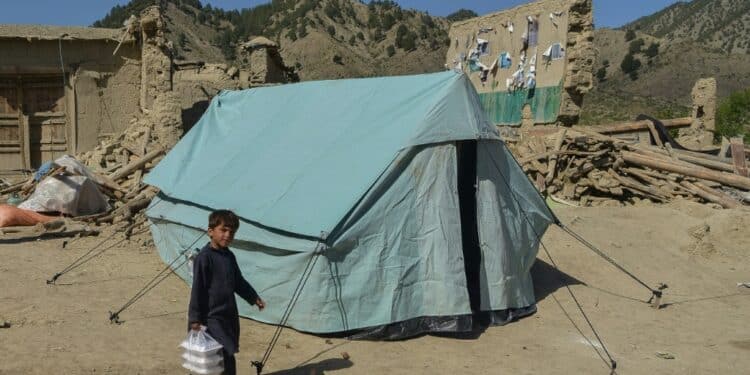The United Nations called Thursday for urgent funding to help thirty million children suffering from acute malnutrition “before it is too late” in countries being hammered by the food crisis.
UN agencies said conflict, climate shocks, the Covid-19 pandemic and rising living costs were leaving an increasing number of children badly malnourished.
“Currently, more than 30 million children in the 15 worst-affected countries suffer from wasting — or acute malnutrition — and eight million of these children are severely wasted, the deadliest form of undernutrition,” five UN agencies said in a joint statement.
The fifteen countries are Afghanistan, Burkina Faso, Chad, Democratic Republic of Congo, Ethiopia, Haiti, Kenya, Madagascar, Mali, Niger, Nigeria, Somalia, South Sudan, Sudan, and Yemen.
Soaring food prices were aggravating food shortages and displacing populations, the UN said, as well as hindering access to affordable essential nutrition.
The joint statement called for greater investment to support its efforts to meet the “unprecedented needs of this growing crisis, before it is too late”.
Its plan aims to prevent, detect, and treat acute malnutrition among children with interventions in the food, health, water and sanitation, and social protection systems.
“This situation is likely to deteriorate even further in 2023,” said Food and Agriculture Organization chief Qu Dongyu.
“We must ensure availability, affordability and accessibility of healthy diets,” it said.
The joint agency plan will target children aged under five; pregnant and breastfeeding women; and women and caregivers of children under five.
“Today’s cascading crises are leaving millions of children wasted and have made it harder for them to access key services,” said Catherine Russell, head of the UN children’s agency UNICEF.
Also Read: US Offers $10 MN for ‘Mastermind’ of 2019 Kenya Hotel Siege
“Wasting is painful for the child, and in severe cases, can lead to death or permanent damage to children’s growth and development,” she said.
“We can and must turn this nutrition crisis around through proven solutions to prevent, detect, and treat child wasting early.”
Children with acute malnutrition have weakened immune systems and are at higher risk of dying from common childhood diseases.
Those that survive could face lifelong growth and development challenges.
“The global food crisis is also a health crisis, and a vicious cycle: malnutrition leads to disease, and disease leads to malnutrition,” said World Health Organization chief Tedros Adhanom Ghebreyesus.
“Urgent support is needed now in the hardest-hit countries to protect children’s lives and health, including ensuring critical access to healthy foods and nutrition services, especially for women and children.”






































































